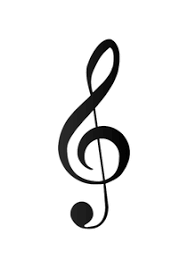|
If there is one thing I have heard over and over throughout the pandemic, it's how much we have missed making music as a group. Lately, in my music therapy studies, I've learned of more and more context in the use of group music making to fill personal and social needs. Going into that will be a long process, but just consider the article I've already written entitled "My Pet Peeve on the Song of the Righteous" that goes a little bit into the context. To go into gospel doctrine in short, singing hymns as a group is critical to building the Zion people we are destined to become. Consider the hymn plastered on the home page of this website, "then come before God's presence, in singing worship him, express a heart to full to speak, in one exultant hymn." When we sing, we are praying, and drawing closer to God's presence as a social group.
With that in mind, I have taken on a new gospel study endeavor. I'm going through the hymns published by the Church of Jesus Christ of Latter-day Saints and finding the doctrines of the hymns, their main messages, and the significance of singing these hymns as a group. Specifically, I'm going through each hymn and answering these five questions:
Having said that, looking at the harmonic portions of the hymn I found some fascinating discoveries. The first stanza begins in G major, and spends a good amount of time there, with just enough V chords to keep the music going. With all the time spent in the "home" chord, there is no question there is a solid foundation for the variations that proceed it. It is such a strong foundation that as the hymn transposes to the key of D, holding the 5th relationship with the original key of G for the next two lines, it almost sounds as more of a suspension that leads to the climactic last stanza. It's this last line that I think is the most musically significant portion of the hymn as it returns to G major, but also highlights the E minor chord through the V/vi chord in the 2nd measure on its way there. This harmonic event, combined with the melodic melasmas in all four voice parts on the word "mount", lead me to believe that the central messages of this hymn lie in this last musical phrase.
I have found added insight on a similar message in the next hymn I'll cover, "Israel, Israel, God is Calling". Stand by for next week's article!
0 Comments
|
AuthorI'm a sacred music enthusiast. I'm one of those people that attends church for the music just as much as the sermon, one of those people that give an evil glare at the people who leave for the congregational hymns, (Ok no, not really). Archives
December 2021
|


 RSS Feed
RSS Feed
